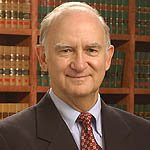DENIAL 3.2 ***
Guilty
until proven innocent ?!?! It's a concept that is inconceivable to Americans,
yet it's the core of British Law in libel cases. When once respected British
historian David Irving sues American scholar and educator Deborah Lipstadt for
libel, based on her recent book that accused him of being a Holocaust denier,
the burden falls to Lipstadt to prove not just that Irving's work was a
purposeful lie, but that the Holocaust did in fact take place. In other words,
if the words used in her book against Irving are true, she would win the
case. But she has to prove that he was a racist, an anti-Semite and
knowingly misrepresented the facts in his works as a Holocaust denier.
The movie begins with
Ms. Lipstadt as a professor in 1994 at Emory University. In 1996, the
lawsuit by Irvin is filed in London. In preparation for the case , Lipstadt and
Rampton visit Auschwitz in 1998. Though the courtroom drama and corresponding
legal work takes up much of the film, it's this sequence filmed at Auschwitz
that is the heart and soul of the film. Very little melodrama is added … the
scenes and the setting speak for themselves and here the cinematography is
absolutely perfect in capturing the vast haunting terror of the place.
The trial finally starts in 2000, and as always, it's fascinating to compare
the British court of law and process with that of the United States. The formality
is on full display, but nuance and showmanship still play a role.
Rachel
Weisz plays Lipstadt as an intelligent and determined woman who refuses to back
down from a racist bully like Irwin. Andrew Scott is magnetic as the highly
intelligent Solicitor, Anthony Julius, who lays out a
defense strategy with a very troublesome requirement for Lipstad: that neither
she nor any Holocaust survivors are to testify in the trail. Julius has good
moral and tactical reasons for this, and he's at his most emotional trying to
explain and defend it to Lipstadt. Tom Wilkinson is terrific as Richard Rampton, the barrister who puts on
the powdered wig and brilliantly presents the case in court. And then
there is Timothy Spall who makes for a perfect villain. He gives us both Irving
the charmer and Irving the charlatan -- the expertise, the intellect, the
eloquence, but also the malice, the misdirection, the sexism.
As a
guide to how historians actually work, and as a guide to the wacky/false world
spun by Holocaust deniers, the film is on its firmest ground. Also
the film succeeds in going far beyond a single legal case to raise important
questions about the Holocaust and even show an application to today's world.
"Denial" offers a unique opportunity for reflection and discussion
rarely to be found in a mainstream motion picture.
Rated PG-13 for thematic material (?) and brief strong language
( the “F” word is used once). |
Clark

No comments:
Post a Comment